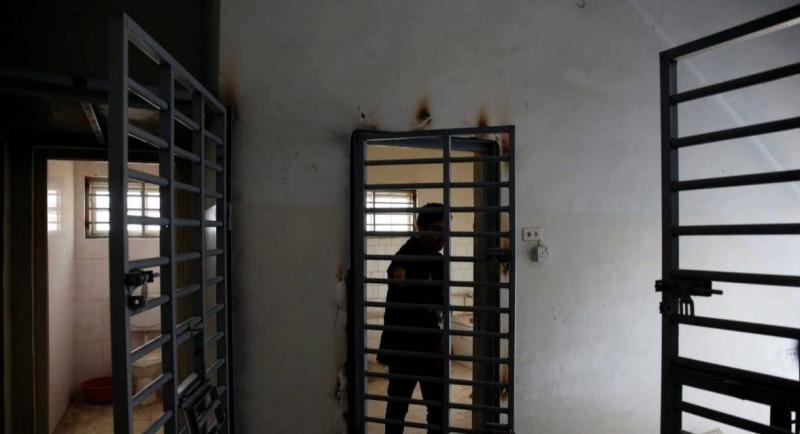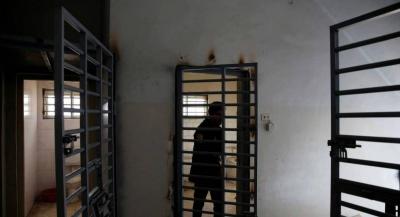The Strategic Center for Human Rights in Iraq announced that there are three thousand female prisoners, including Iraqis, Arabs, and foreigners, in the country’s prisons and detention centers, indicating that most of the cases involving these women are related to criminal and terrorist offenses. The center’s president, Fadel al-Gharawi, stated that "the reasons leading to criminal behavior among women include family disintegration, deviance within the family, particularly from role models for females, low economic status, bad company, educational level, free time, weak religious motivation, and misuse of social media."
According to the center's statistics, "Iraq ranks 81st globally in terms of prison overcrowding," and last April, Iraqi Justice Minister Khaled Shwani announced plans to reduce prison overcrowding by 200% by opening new prisons. Iraqi activist Nour Imran explained that "women's prisons, particularly in the capital Baghdad, are overcrowded, with some prisons holding nearly four times their intended capacity," confirming to "Al-Arabi Al-Jadid" newspaper that "the least offenses committed are related to terrorism, but most are linked to drugs, begging, fights, and domestic violence."
Imran pointed out that "although the management of women's prisons is exclusively in the hands of women, these prisons are not free from human rights violations, and there is a significant shortage of female researchers in social and mental health fields." She noted that "many female prisoners suffer from mental and physical health issues, and some who are released after serving their sentences report numerous problems with treatment, lack of healthcare attention, and difficulties in obtaining some feminine necessities."
Moreover, Mohamed Anouz, a member of the legal committee in the Iraqi parliament, stated that "the overcrowding of prisons in Iraq has become evident and requires serious legal and reform reviews, which includes women's prisons as well." He elaborated that "one of the main motivations for calling for a general amnesty law is the overcrowding within prisons."
He added that "overcrowding leads to the spread of diseases and increased government expenditure on these prisons, knowing that solutions could be much simpler through general amnesty." He continued by saying that "considering increasing the number of prisons or expanding existing ones does not solve the crisis, as we want to achieve good results that help the Iraqi community end their suffering."
Iraqi women's prisons experience a significant surge in the number of female prisoners, exceeding double the designated capacity, which civil and human rights organizations deem an "violation" of human rights. The Ministry of Justice previously acknowledged that the overcrowding percentage in prisons reaches 300%.
In a statement last August, the spokesperson for the Ministry of Justice, Kamal Amin, mentioned that all Iraqi prisons are experiencing overcrowded conditions, with about 2,100 female prisoners, distributed between criminal and terrorist offenses, including a few hundred who hold foreign nationalities. The Iraqi government, represented by the Ministry of Justice, continuously strives to provide services for children, with future plans to increase the capacity of women's prisons to alleviate the overcrowding issue.
In a previous report by the Human Rights Committee in the parliament, it was pointed out that each prisoner costs the state at least 10,000 dinars a day, resulting in Iraq spending 220 billion dinars annually on prison inmates. The Iraqi Center for Documenting War Crimes revealed in a report late last year that government authorities detained tens of thousands of individuals for political or vindictive reasons under inhumane conditions in overcrowded and unsanitary cells for many years, noting that high temperatures and humidity in these detention places significantly affect their health.




